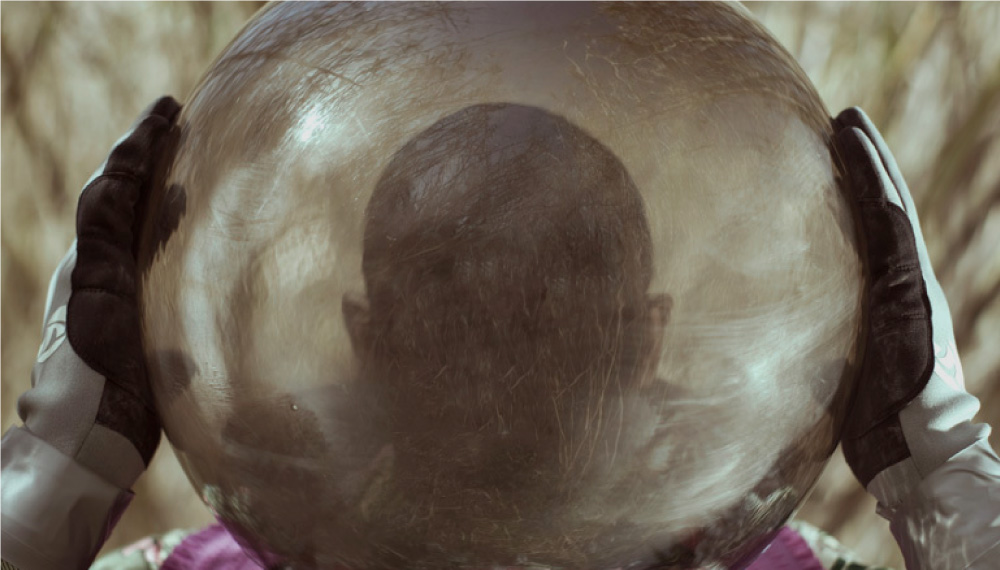Misc 003 | No More Labels
This is an excerpt from a TED Talk called No More Labels, by Wanuri Kahiu, a Kenyan science fiction filmmaker and storyteller. It deals with science fiction and fantasy storytelling by artists who are African or of the diaspora, and the issues of racial identity amongst artists from Africa and of the diaspora.
This is an excerpt from a TED Talk called No More Labels, by Wanuri Kahiu, a Kenyan science fiction filmmaker and storyteller. It deals with science fiction and fantasy storytelling by artists who are African or of the diaspora, and the issues of racial identity amongst artists from Africa and of the diaspora. If you want to watch the whole video, I've added the link to it below.
Part of my journey has been, first saying that science fiction is not weird in Africa. It is not special. It is not curious. It is not an original thing. We have always been telling stories and in our stores, even as oral storytellers, we have used nature in our stories. We have talked about animals. We have talked about the ability of organic sciences in all of our stories. We have had fantasies. We have had myths in our own legends about our own self creation. Those things have existed, but recently there's been a phenomenon of labeling things, "Afro" this, or "Afro" that...
And one of those things that happened is my work started being labeled afro-futurist, and I appreciate the idea of afro-futurism because it brings together or draws attention to works and pieces of art that have either some sort of fiction or they bring in ideas of myth -- science fiction, speculative fiction, fantasy, and enveloped them into one.
“Part of my journey has been, first saying that science fiction is not weird in Africa.”
But my concern is that by labeling my work as an Afro-futurist work, it means that it's very specific to people of the Diaspora, or people who are black, or people who are afro-something, and that concerns me because the story that I told was motivated by the very idea that I hate bottled water. I hate the fact that you have to buy bottled water -- the idea that you have to buy natural resources, because where does it end?
And that's the reason I really created Pumzi. When we, ourselves, start labeling ourselves, "afro" this or "afro" that -- when it doesn't matter what we do as an artist, if you are from Africa or if you're a person of the diaspora, you will immediately get that anyway. It doesn't matter if I stood here and I said, "I'm a filmmaker," there will be people who leave this audience and say, "Do you remember that black filmmaker from Kenya?"
That's what will happen whether I want it to happen or not. These are the things that will be imposed on us. So instead of us labeling ourselves and making it more specific and segregating ourselves from the whole human experience, I urge you to think wider than that and to have less labels and maybe just to Be...
Misc 002 | Intergalactic Collard Greens
My science fiction education began with a simple realization: Humans Are White.
This editorial was taken from PEOPLE OF COLO(U)R DESTROY SCIENCE FICTION! by Lightspeed Magazine.
My science fiction education began with a simple realization — humans are white.
As a chubby, country black boy from a city in the south with a larger than average population of African-American people taking up physical, cultural, and social space, every part of my life was surrounded by and suffused with blackness. Every part, that is, except the pieces of my life reserved for the consumption of science fiction. My black friends and I engaged with space, with planetary jumps and starship crews and time travel and alien fauna, through the lens of white humans, white heroes, and white culture. Is it any wonder, then, that my fledgling science fiction tales were full of these same white humans? This is not a singular experience, either. Talk to any person of color who possessed a childhood interest in creating science fiction. Many of them will report doing the same, or similar.
Science fiction’s great self-declared distinction from fantasy is the presence of steadfast rules, usually governed by applications of hard science. Mainstream science fiction also seemed to possess a set of very scientific rules regarding what happened when one encountered blacks:
There were never more than three black people in any respective galaxy, except for random planets somehow chock-full of blacks who were unable to progress their culture past iron spears and loincloths.
Blacks were not allowed to interact with each other. Instead they were required to float alone and lonely through their respective spaces like lumbering chocolatey gas giants.
If someone absolutely had to die in order to move the plot forward or gird the loins of the hero, it would be someone who looked like the black consumer, or the black consumer’s sister, or the black consumer’s best friend, or the black consumer’s black next-door neighbor.
“My science fiction education began with a simple realization — humans are white.”
To paraphrase Richard Pryor, white folks didn’t seem to want no niggers in the future.
Perhaps this is why the future is so important to black people, and why it is so painful for us when we are excluded from most mainstream futures. Hundreds of years of subjugation, of overt and covert messages of disdain and unworthiness weigh on a soul. Black people have long been working toward stepping into a promised land where they could be treated fairly and equally—not as people without color, but as people who are considered human despite their skin.
We’ve long since learned that, in order to exist in myriad streams of time and space, we have to create our own lanes in order to show and prove that the stories of nonwhite humans matter. We’ve birthed works of science fiction that have imagined us in worlds where we would not be murdered simply for existing. We’ve considered the effects of spacetime on our bodies, and interwoven Africa into the cosmos. We’ve written, painted, and harmonically tattooed our bodies, our myriad identities amongst the stars. As always, we black creators have taken the dregs of what we’ve been given and created something of wonder from it.
Intergalactic collard greens, if you will.
When we’re talking about destroying science fiction, black people and other groups of people of color have been neck deep in the work. For centuries, we have dared to imagine, depict, and explore the reaches of space, time, and power on our own, with no approval or interaction from the powers that are. We’ve already lifted our voices, and our voices have been a mighty wave, powerful enough to show the universe that we are here, in the midst of science fiction—that we’ve been here, and that we aren’t going anywhere.
We’re just waiting on the rest of you to catch up.
ABOUT THE AUTHOR
Troy L. Wiggins is from Memphis, Tennessee. He was raised on a steady diet of comic books, fantasy fiction, and role-playing games. His short fiction and essays have appeared or are forthcoming in Griots: Sisters of the Spear, Long Hidden: Speculative Fiction from the Margins of History, The Mash-Up Americans, Literary Orphans, and Memphis Noir. He is a contributor at Book Riot and Panels, and he blogs about the intersection of speculative fiction, race, and nerd culture at Afrofantasy. Troy lives in Memphis with his wife and their expatriate.
You can find him on Twitter @TroyLWiggins.
Misc 001 | Morality in Storytelling
Unlike traditional fantasy, Miyazaki doesn't present morality as a simple binary. The dichotomy of good vs evil isn't present in these films. Everything and everyone displays elements of tenderness as well as elements of savagery. Nothing in the world is either one or the other, is an amalgamation of all emotions within a spectrum.
This is a excerpt from a short documentary, called The Essence of Humanity, which analyzes the storytelling philosophy and craft of legendary filmmaker, Hayao Miyazaki. The entire film is posted below if you'd like to view it.
Unlike traditional fantasy, Miyazaki doesn't present morality as a simple binary. The dichotomy of good vs evil isn't present in these films. Everything and everyone displays elements of tenderness as well as elements of savagery. Nothing in the world is either one or the other, is an amalgamation of all emotions within a spectrum. The same way Lady Eboshi wants to destroy the forest yet at the same time houses the sick and gives the inhabitants of iron town a good lifestyle, Miyazaki purposes a theme of morality that’s complex. It's not shown to repress the negative aspects of humanity because they exist all around us; it's part of nature. Brutality and tenderness co-exist without any contradictions in these worlds, as they do in our own.
This realism avoids pandering to an audience to give an unflinching view of our own existence, but the message we see is that the story is never about the protagonist winning, it's about the protagonist adapting and growing within a world that isn't built around their needs. We're confronted with harsh realities, however they're addressed so that something better may arise.
“The story is never about the protagonist winning, it’s about the protagonist adapting and growing within a world that isn’t built around their needs.”
Many [American] animations end with everything tied in a neat bow, saved by a deus ex-machina that solved everything. But there hasn't really been any development of the character. They achieve their goal without overcoming any long lasting personal obstacles. On the other hand, Miyazaki characters never end as the audience expected. They begin flawed and remain flawed, but their experiences have helped blossom their outlook. Ashitaka's scar may still remain, and no one may ever understand or believe Chihiro, but the solidarity and connection they've made with their world is an example of a spiritual liberation of the character instead of a material one.
About
Creative Director. Designer. Storyteller. Nilla wafer enthusiast. Under no circumstances should you ever allow my talented and amiable disposition to fool you into thinking that I am anything more than young, dumb and full of ideas.





